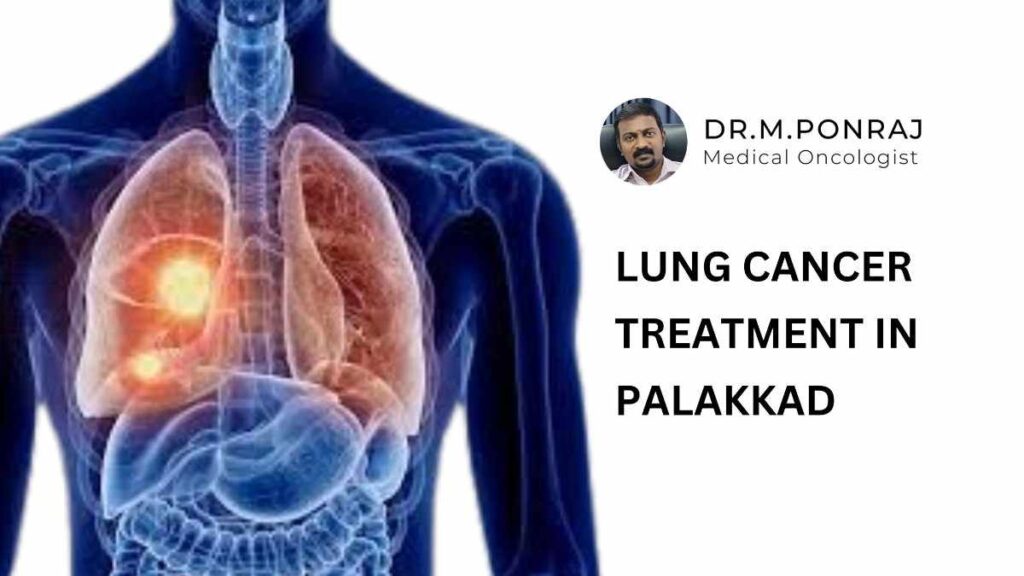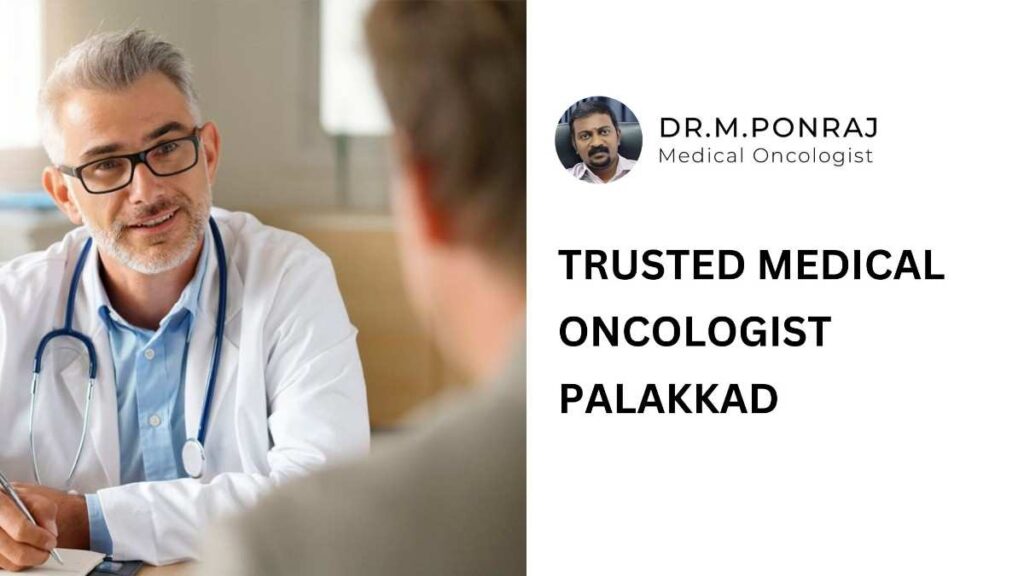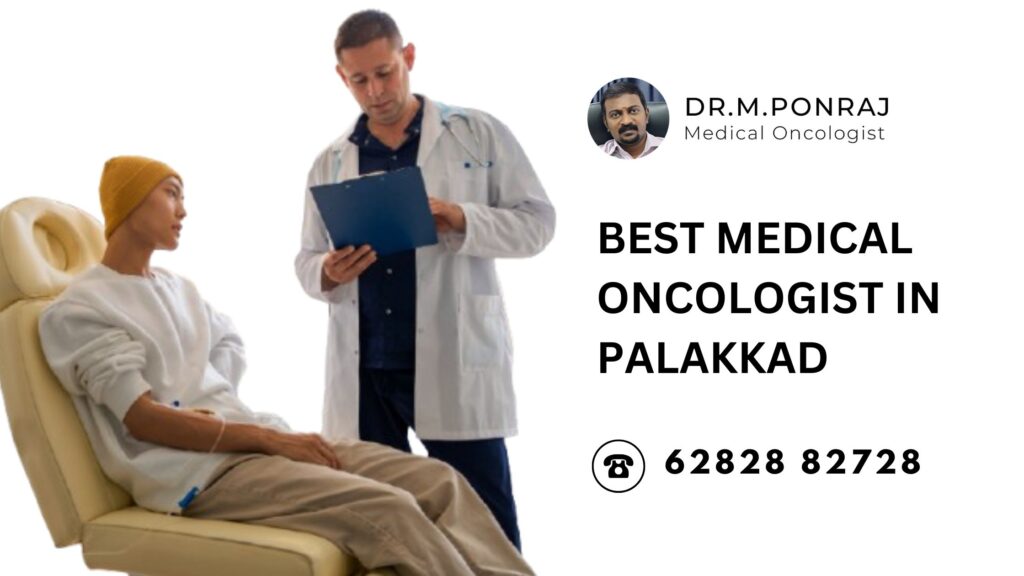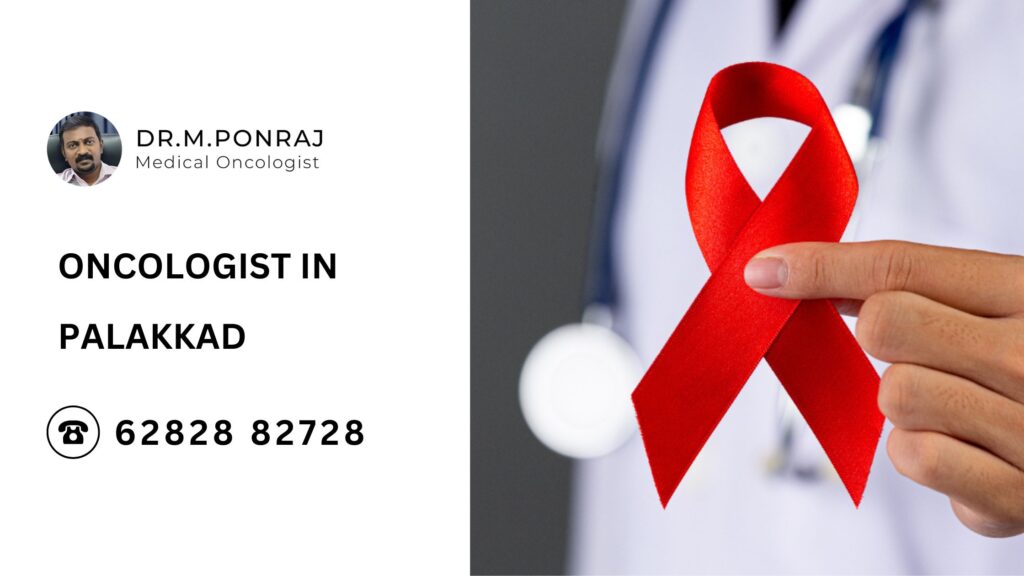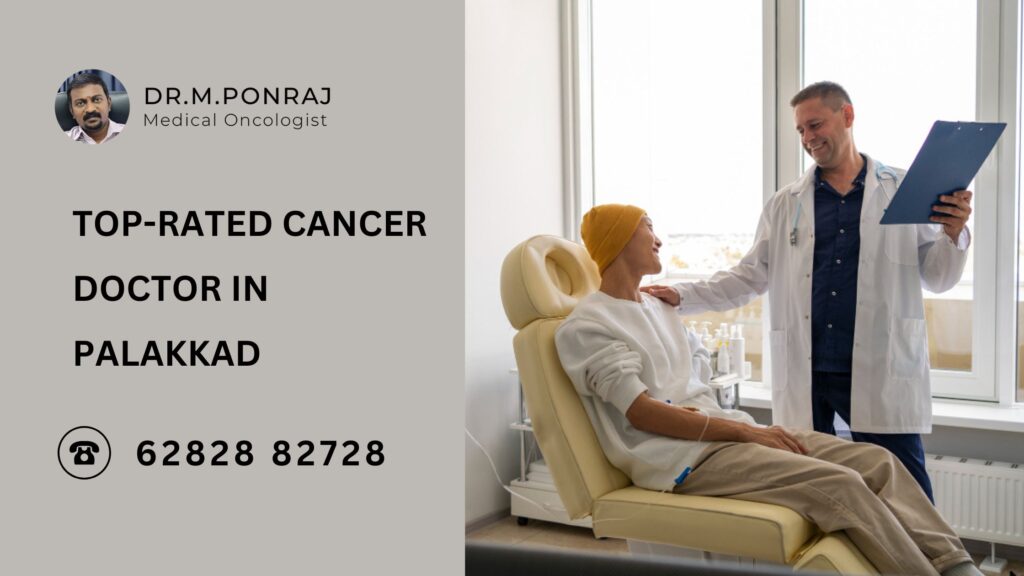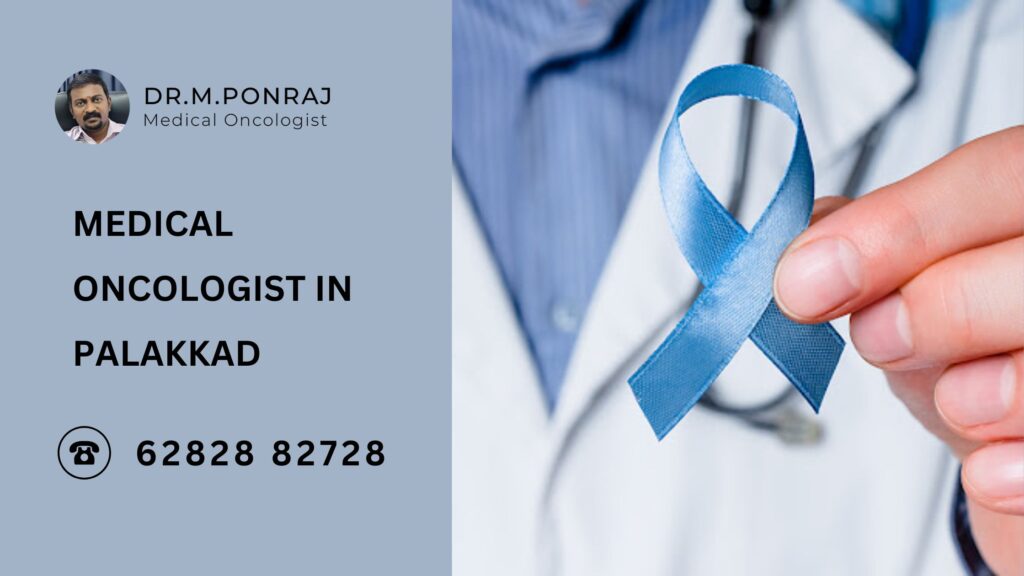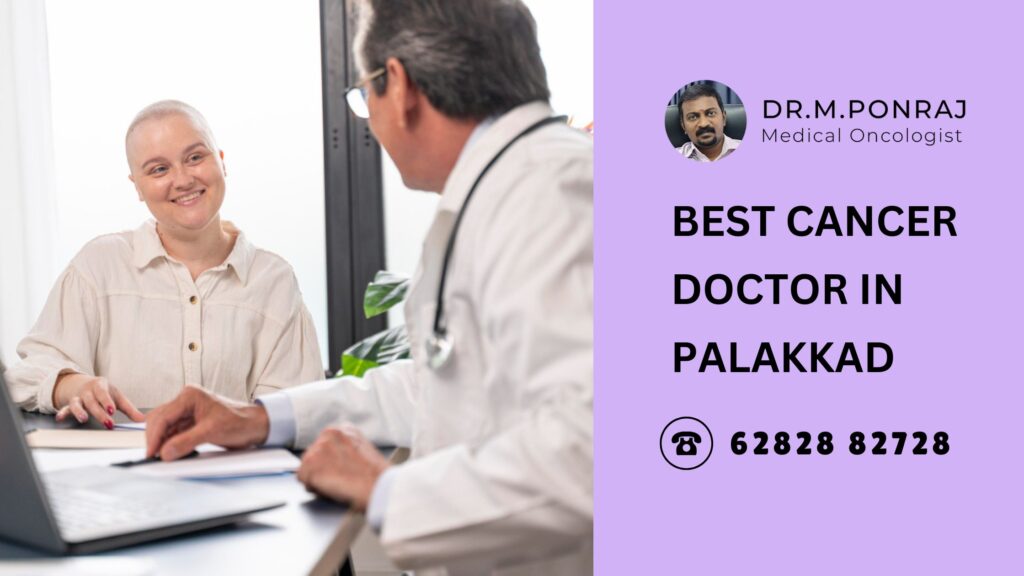Lung Cancer Treatment In Palakkad
Lung cancer remains one of the most challenging and concerning diseases in today’s world. With increasing awareness and advancements in treatment technologies, patients now have access to comprehensive care that not only focuses on treating the disease but also on improving the overall quality of life. In this blog, we will delve into every essential aspect of lung cancer care—from understanding the disease to exploring modern treatment techniques, risk factors, symptoms, and the importance of early diagnosis. As a leading medical oncologist, I, Dr. Ponraj, bring years of experience, compassion, and dedication to revolutionize cancer care. About Lung Cancer Lung cancer is a complex disease, characterized by the uncontrolled growth of abnormal cells in the lung tissue. It is primarily categorized into two main types: non-small cell lung cancer (NSCLC), which accounts for approximately 85% of cases, and small cell lung cancer (SCLC), known for its aggressive nature and rapid spread. Despite continuous advances in early detection techniques, lung cancer remains a leading cause of cancer-related mortality worldwide. The current research and treatment protocols have evolved significantly, emphasizing early diagnosis and innovative treatment methods. The Biology of Lung Cancer Lung cancer develops when genetic mutations in lung cells lead to abnormal cell behavior and uncontrolled cell division. These changes often occur due to a mix of environmental factors, genetic predispositions, and lifestyle influences. Identifying the specific genetic markers of lung cancer has allowed for the introduction of precision therapies, which target these molecular changes directly and thereby offer more effective treatment outcomes. Modern Advances in Treatment Over the last decade, oncology has seen revolutionary advances in treatment options. These include targeted therapies, immunotherapy, and a combination of chemotherapy and radiation. Newer approaches have not only improved survival rates but also enhanced the quality of life for many lung cancer patients. Today’s treatment strategies are more personalized than ever and are tailored to each patient’s unique genetic makeup, disease stage, and overall health status. For patients who are located in the region of Palakkad, my practice offers a robust program known as lung cancer treatment in palakkad. This integrated program harnesses the latest advancements in medical technology and clinical research to deliver state-of-the-art care in a compassionate and nurturing environment. Causes of Lung Cancer Understanding the causes of lung cancer is essential for both prevention and early diagnosis. Research has identified several risk factors that contribute to the development of lung cancer, and knowing these can empower patients to make informed health decisions. Environmental Factors Smoking: Tobacco use is the number one cause of lung cancer. The chemicals in tobacco smoke are highly carcinogenic, leading to mutations that can initiate lung cancer development. Even for individuals who have quit smoking, the damage may still linger, making ongoing screening essential. Secondhand Smoke: Exposure to secondhand smoke also increases the risk of developing lung cancer, particularly in environments where smoking is prevalent. Radon Gas Exposure: Radon is a naturally occurring radioactive gas that can accumulate indoors. Long-term exposure to high radon levels has been linked to lung cancer. Occupational Hazards: Occupational exposure to carcinogens such as asbestos, arsenic, silica, and diesel exhaust can significantly raise lung cancer risk. Genetic and Biological Factors Gene Mutations: Some genetic mutations predispose certain individuals to lung cancer. Research into specific genetic markers continues to improve our understanding of the disease and informs personalized treatment strategies. Family History: A family history of lung cancer can increase the likelihood of developing the disease, as certain genes may be inherited that contribute to cancer risk. Lifestyle Influences Poor Diet and Inactivity: Although not direct causes, poor nutrition and lack of physical activity can weaken the body’s natural defenses, potentially contributing indirectly to the development and progression of lung cancer. Recognizing the combination of environmental, genetic, and lifestyle factors helps clinicians in designing proactive approaches in early detection and prevention. For those seeking advanced care, my practice’s specialized program for lung cancer treatment in palakkad implements preventative measures and personalized screening strategies to identify risk factors early and intervene promptly. Risk Factors In addition to the causes, understanding risk factors is critical when assessing lung cancer susceptibility. The following factors have been identified as increasing the risk of lung cancer: Smoking and Tobacco Use Cigarette Smoking: As noted earlier, cigarette smoking remains the single largest risk factor for developing lung cancer. Cigar and Pipe Use: These are also significant risk factors, particularly when used regularly over prolonged periods. E-Cigarettes and Vaping: Emerging research suggests that even alternative forms of nicotine consumption might contribute to lung tissue damage. Environmental Exposure Air Pollution: Areas with high pollution levels have been linked to an increased incidence of lung cancer. Exposure to Carcinogens: People working in heavy industries, construction, or jobs that involve exposure to chemicals and dust have higher lung cancer risks. Genetic Predisposition Inherited Mutations: As mentioned previously, a family history of lung cancer can denote a higher genetic predisposition to the disease. Ethnic and Racial Factors: Certain ethnic groups may have variations in genetic susceptibility which could influence overall risk. Other Medical Conditions Chronic Lung Diseases: Conditions such as chronic obstructive pulmonary disease (COPD) and pulmonary fibrosis can increase the risk of lung cancer. Immune System Disorders: A weakened immune system, whether due to illness or certain medications, may fail to protect the body from abnormal cell growth. By understanding these risk factors, patients can take proactive steps towards mitigation. This approach extends to those exploring advanced options like lung cancer treatment in palakkad, where extensive screening protocols and preventive advice are provided to reduce risk and enhance early detection. Meet Dr. Ponraj: Your Partner in Cancer Care As a dedicated and compassionate Medical Oncologist based in Kerala, I have spent years honing my craft, learning from the latest research, and most importantly, working tirelessly to improve patient outcomes. My journey in oncology has been driven by passion, a commitment to advancing cancer care, and a deep empathy for my patients’ challenges. Commitment to Innovation In the constantly evolving field of
Lung Cancer Treatment In Palakkad Read More »

